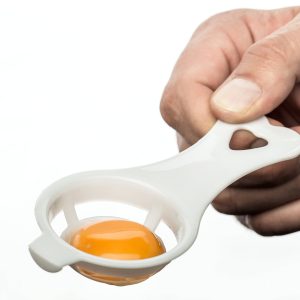THE YOLK’S ON US – How we got duped into the cholesterol myth

Eggs, Lies, and Breakfast Tables
For decades, we were told to toss the yolk — the “dangerous” part of the egg supposedly linked to heart attacks and clogged arteries. Cholesterol was the enemy, and eggs were the breakfast villain. But guess what? The real joke — or yolk — was on us.
I’ve always loved eggs. Scrambled, poached, over-easy — you name it. For me, eggs were never just food; they were comfort, clarity, and nourishment. So when nutrition guidelines in the 80s and 90s warned us to avoid them, I looked around and thought, “This advice feels cracked.” Turns out, I was onto something.
The Real Villain: Processed Food, Not Cholesterol
We now know that dietary cholesterol — the kind found in eggs — isn’t the heart-health monster it was made out to be. In fact, new research shows that eating up to two eggs a day in a balanced diet may lower LDL (“bad”) cholesterol and even reduce the risk of heart disease and early death.
Meanwhile, what quietly slipped into our diets during the anti-fat era? Highly processed snacks, refined carbs, low-fat spreads loaded with chemicals, and industrial seed oils. These were the real disruptors of our metabolic health. As we ditched butter for margarine and eggs for sugar-coated cereals, chronic diseases soared.
The food pyramid misled us, and the food industry cashed in. We feared the egg while unknowingly embracing the very ingredients that undermined our health.
The Science Flips the Script
Recent studies — including one in the American Journal of Clinical Nutrition — have cleared the egg’s name. Older adults who ate eggs regularly had lower rates of heart disease and lived longer overall. The key? Context. Eggs paired with real food (like vegetables and healthy fats) support health. But eggs served with greasy fries, bacon, or cooked in rancid oils? That’s a different story.
At the same time, U.S. progress in reducing chronic disease has stalled. While other countries have seen improvement, America continues to struggle, despite spending more on healthcare than anyone else. Why? Because we’re still ignoring root causes — poor diet, toxic ingredients, lack of movement, and stress.
One study points to culprits like seed oils, plastics, and hormone disruptors that overload our bodies, increase inflammation, and drive disease. Spoiler alert: It was never the yolk. It was the food system.
Back to Basics: Eating Like Our Ancestors
Let’s rewind a century or more. People used to eat from their gardens and kitchens — not from factories. Chickens laid eggs in the yard. Butter was churned, schmaltz was rendered, and veggies were pulled from the earth. Food wasn’t labeled “low-fat” or “fortified.” It was real.
Back then, chronic disease was rare. Today, we carry it like a burden we didn’t ask for. But here’s the good news: we have far more power over our long-term health than we realize. A return to whole, unprocessed foods can shift the trajectory — one meal at a time.
As a religious Jew, I eschew the bacon but kept eggs close. Ironically, that “old-fashioned” choice turned out to be a wise one. The egg was never our enemy. The real threat was how far we strayed from real food.
The Egg as Metaphor
There’s something poetic about an egg. Fragile shell, vibrant yolk, and life inside. For years, we cracked them open with guilt. Now, we crack them open with gratitude. The egg reminds us of what matters: simplicity, nourishment, wholeness.
We were misled by fear-driven headlines, but we can course-correct. Let’s stop chasing food fads and start embracing foods that have stood the test of time.
So, here’s to the humble egg — a symbol of renewal, resilience, and the power to rewrite the story. Let’s give it the respect it deserves. The yolk’s on us — but only if we keep believing the myths.
LISTEN TO MY SUNO SONG “My Eggsellent Eggs” BY CLICKING HERE
READ MY SUBSTACK POST BY CLICKING HERE
We love hearing from you, please feel free to leave your comments below.
With Gratitude,
Rus Devorah
Sources:
- American Journal of Clinical Nutrition (2025). High-cholesterol, low-saturated-fat diets and LDL outcomes.
- Frontiers in Endocrinology (2024). Low blood cholesterol and late-life mortality.
- Mercola Media (2025). Chronic disease rates: Global decline vs. U.S. stagnation.
- Nutrients (2025). Biological effects of linoleic acid and its oxidized metabolites.
- Science Alert & SciTechDaily (2025). New evidence on egg consumption and heart health.


